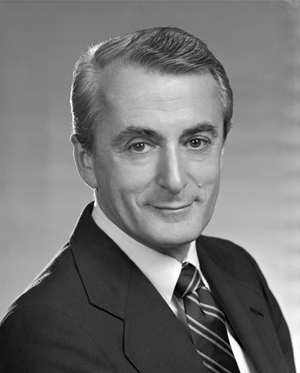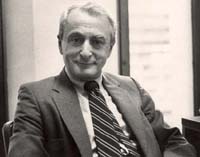Joseph Dembo, WRSU Alumni, CBS Radio Vice President and Correspondent Who Helped Pioneer All-News Radio Format Dies at 83
In a 28-year career at CBS, he played several
prominent roles in radio and television, including as anchorman of the CBS Radio Network’s “News-on-the-Hour” national broadcasts in the late 1970s.
He also was the executive producer of “The CBS Morning News” network
television broadcast from 1974 to 1976 and ran CBS News bureaus in Rome and
Athens from 1971 to 1974.
Radio Network’s “News-on-the-Hour” national broadcasts in the late 1970s.
He also was the executive producer of “The CBS Morning News” network
television broadcast from 1974 to 1976 and ran CBS News bureaus in Rome and
Athens from 1971 to 1974.
All-news radio was a fledgling format in the early 1960s. The first models failed and there were just a couple of stations in the U.S. when, in 1967, CBS Chairman William Paley decided to make WCBS, his also-ran flagship radio station, an all-news outlet. He picked a hard-news veteran to do it. Dembo had been running the network’s radio news operation as its director, having been brought to the network after stints as news director and executive producer at WCBS Radio, where he initiated the “Up-to-the-Minute” news concept. He had additional hard-news experience from his time at NBC in the 1950s as a producer and reporter for the network and its local television station, WNBC-TV.
Dembo was put in charge of WCBS Radio as its vice president and general manager and assembled a team that included anchors Charles Osgood, Lou Adler, Steve Porter, Jim Harriot and Robert Vaughn, street reporters Ed Bradley and Steve Flanders and sportscaster Pat Summerall. He also hired a future president of CBS News, Ed Joyce, to be his news director.
By 1970, the transformation was complete. WCBS was broadcasting news all the time and, before long, six more CBS Radio station in major markets switched to the successful and durable formula in which CBS Radio remains the national leader to this today. In 1971, with the station on a firm footing, Dembo left to rejoin the network news division, heading off to Rome to run the bureau there.
Dembo returned in 1974 to take over the network’s television morning news program for two years. He left “The CBS Morning News with Hughes Rudd and Bruce Morton” in 1976 to go back on-air, a role he last performed at WCBS, where he could be heard delivering the station’s editorials as its general manager. As a CBS News correspondent, he reported for the CBS News radio documentary series “Newsmark,” in addition to his daily “News-on-the-Hour” duties for the CBS Radio Network, a job he held until November 1978. He was then named executive editor for hard-news broadcasts for the CBS Radio Network.
He picked up the added title of news director before being made a network
vice president in charge of all of CBS Radio in 1982.
Dembo left CBS in 1988 and joined the faculty of Fordham University, where, until just last year, he was a professor of media studies teaching courses on journalistic ethics, the history of radio and television journalism and a class on the Edward R. Murrow era at CBS. He always kept a picture of the CBS News icon on his office wall at CBS News and was a stern enforcer of the news legend’s reporting standards. Dembo also served as acting president of National Public Radio and for three years was a member of the NPR board of directors.
“I've known Joe Dembo as a boss, mentor and good friend for four decades now,” said Charles Osgood, anchor of the CBS Radio Network and television’s SUNDAY MORNING. “It's fitting that he spent his last years as a professor at my alma mater, Fordham. Even as a producer and executive Joe was always a great teacher. He certainly taught me a lot.”
Joseph T. Dembo was born in Vienna, Austria, and emigrated to the U.S. as a child. He grew up in New Brunswick, N.J., where he was graduated from Rutgers University with a Bachelor of Letters degree in journalism in 1950. He entered broadcasting in 1952 at NBC in New York, where his assignments included Central News Desk supervisor, feature reporter-producer of “Esso Reporter” on WNBC-TV. He also served as an associate producer on NBC’s network morning show “Today.”
He began his CBS News career with WCBS Radio in 1960 and was named executive producer of the station within a year. In 1962, he was appointed director of News and Public Affairs for WCBS, creating the award-winning series “WCBS Radio Looks at Television” and moderating the station’s weekly news interview program, “Let’s Find Out.”
Dembo received the Orson Welles Award for Lifetime Achievement from the Radio Advertising Bureau in 1988.
He made headlines in 1992 when a newsletter published by a journalists' organization, the Society of the Silurians, erroneously reported that he had died. Dembo recalled receiving calls from people he hadn't heard from in 30 years and even an offer for his Manhattan apartment.
He is survived by his wife, Margot (nee Bettauer) and three children, Wendy, David and Robert and grandchildren Elly and Jesse.